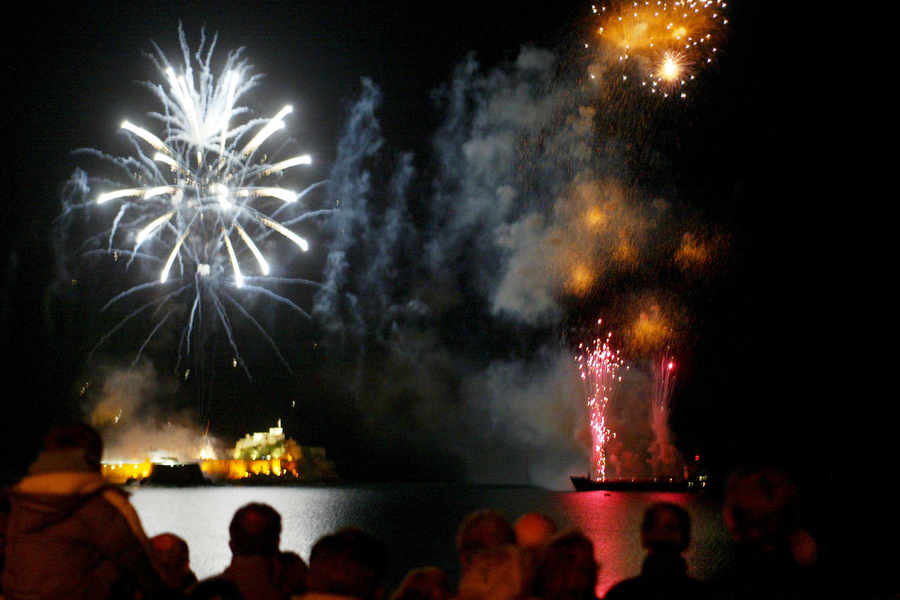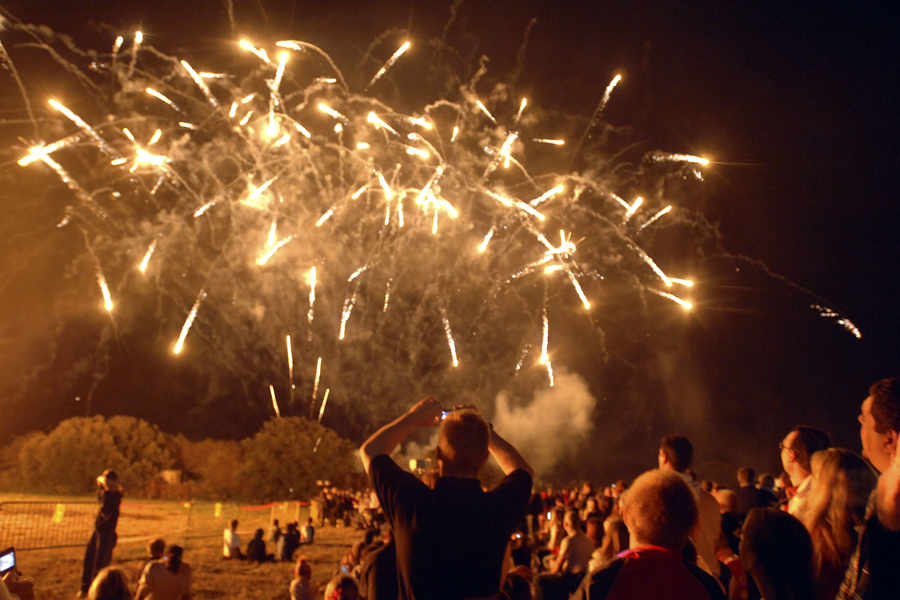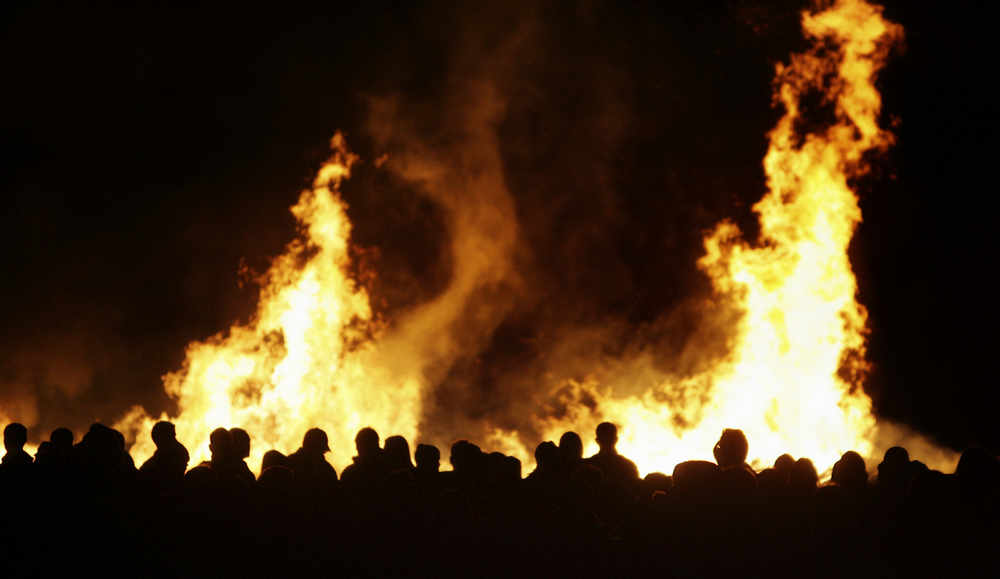Remember remember the fifth of November – but there’s a lot more to remember if you’re planning a bonfire or fireworks display at home…
FROM late October onwards there are catherine wheels, chrysantheums, roman candles and sparklers in Jersey’s shops.
But if the idea of a firework display at home sets you alight then make sure you give these temperamental rockets all the respect they deserve – after all, they are explosives.
By no means do we want to spoil your fun, but Jersey Fire & Rescue Service have come up with some top tips to stop you going the same way as Guy Fawkes.
If you can’t tell head from tail with your average skyrocket, you might be best to head to a professionally organised event.
Equally, if you’re a bit of a bright spark where pyrotastic pyrotechnics are concerned, domestic displays can be brilliant fun.
Children
Dealing with a firework is no laughing matter. In terms of your kids, keep a close eye on them as the stakes are extremely high. Forget Christmas when they might burn their mouths on a mince pie, every year over half of all fireworks injuries are suffered by children.
The Child Accident Prevention Trust has more guidance on keeping your little ones safe.

Sparklers
Did you think cooking oil was hot? Well sparklers get five times hotter
Children under the age of five should steer clear.
Where to buy
Alarm bells should start ringing if a firework doesn’t show the mark of conforming to the latest safety standards ‘BS 7114’.
Don’t buy fireworks from your mate at work, check out the fully liscensed range in a reputable shop where the retailer knows his peonies from his parachutes.

What to buy
You wouldn’t believe it but they’ve even put fireworks into categories so you know exactly what you’re dealing with. Categories 1 to 3 are what you should be looking for – always read the packet carefully, because a firework does what it says on the tin.
Fireworks available to the public can usually be used either indoors, in your garden or at a display. We don’t even want to know what Category 4 looks like.
Setting them off
And they’re off! Actually wait, this is the bit you really need to think about. If you’re a family of powerful characters, make sure you’ve decided whose in charge before you start setting off fireworks left, right and centre.
Also make all your preparations in daylight and save the pint until after all the coloured beauties have been discharged. You wouldn’t drink before driving and the same rule applies to fireworks.
Keep a few things handy on the night, including:
- A torch.
- A bucket or two of water.
- Eye protection and gloves.
- A bucket of soft earth to put fireworks in.
- Suitable supports and launchers if youre setting off Catherine wheels or rockets.
Clearing up / disposal
You’ve just fired off the most expensive, extravagant explosive in your arsenal, applause, fade to black. Make sure you submerse all used fireworks in a bucket of water over night.
Fireworks have been known to be uncooperative and don’t go off. You must exercise extreme caution in this scenario. The still-active firework, if on private land, must be left undisturbed for as long as possible – and as tempting as it may be, the absolute minimum before you near it is one hour. Then submerse the attention seeker in a bucket of water over night.
Permission is necessary for a home firework display and all firework debric and un-deployed fireworks should be disposed of safely and responsibly using the above as a guide.
Protect your animals
And spare a thought for our feathered and furry friends too. You should take precautions to protect your pets during the times of the year when fireworks are likely to be set off.
Sky lanterns
They may be pretty but sky lanterns are not encouraged for various reasons – enviromental, fire hazard, entanglement hazard, wildlife and livestock are among the list of reasons why the Jersey Fire & Rescue Service do not encourage the use of sky lanterns.
They have even been misinterpreted as marine distress flares, resulting in an emergency response from the Coastguard.
If you do want to use sky lanterns to celebrate an occasion please follow the following guidelines:
- Do not use sky lanterns when their likely path crosses a flight path.
- Ideally set sky lanterns to be blown out to sea.
- Inform the Jersey Coastguard of your intensions.
Bonfire safety tips
- Make sure your fire is well clear of structures like sheds, fences and cables
- Dont use petrol to light the fire often the vapors can collect and explode violently
- Keep a bucket of water or a garden hose nearby – in case of emergencies
- Dont leave the bonfire unattended
- Keep children and pets away from the bonfire
- Dont throw any fireworks into the fire
- Don’t burn aerosols, tyres, canisters or anything containing foam or paint – many produce toxic fumes and some containers may explode, causing injury
- Once the bonfire has died down, spray the embers with water to stop it re-igniting or spreading.
Advice on home fire safety is free from Jersey’s Fire and Rescue Service call 01534445933
Members of the public are advised not to try to tackle fires but to get out, stay out and call 999







